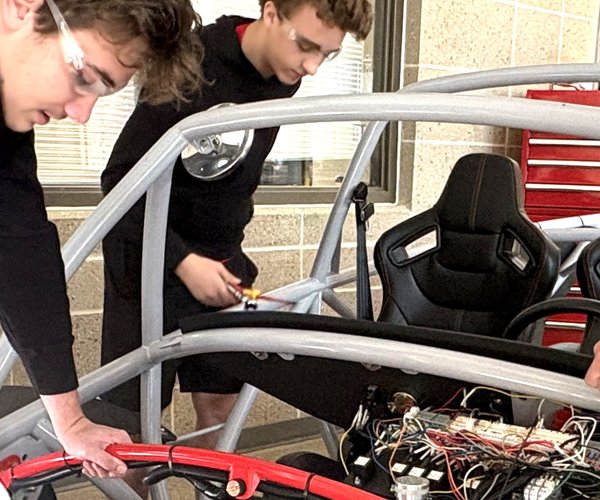The state is making inroads with economic development, members of Effingham County’s General Assembly delegation, and the next big prize could be an automobile manufacturer.
State Sen. Jack Hill (R-Reidsville) praised the $17 million included in the fiscal year 2016 budget for a training center at the Pooler megasite that will serve “not only existing industries but hopefully a new automobile manufacturing facility we’re working on,” he said.
Gov. Nathan Deal and other state officials were making a last proposal last week, according to Hill.
“We should know something within a week,” he said. “That would be great for our part of the state.”
A multi-county development authority centered around I-16, of which Effingham is a part, has submitted an application to the U.S. Army Corps of Engineers to build a 1,900-acre megasite manufacturing facility in Bryan County. The site is across I-16 from Bryan County’s industrial park along Highway 280.
Hill also said a new Georgia Southern University degree program in manufacturing technology has been key in luring a new industry that has not made the decision to locate in south Georgia.
Included the FY16 budget was a $40 million package for “deal-making,” known as the regional economic business assistance account.
“There were several opportunities to encourage economic development,” state Rep. Jon Burns said of the budget. “That was one of the cornerstones of ensuring Georgia remains No. 1 as we attract industries to our state.”
The REBA funds could be used to front-load the state’s drive to land Volvo.
“The state is continuing to be aggressive in seeking new manufacturing and new jobs for the state,” Hill said.
State Rep. Bill Hitchens (R-Rincon) said one of the biggest economic development initiatives during the past General Assembly was the passage of the transportation funding act, HB 170.
“It was a difficult, difficult bill,” Hitchens said. “It was changed probably 100 times.”
Burns also pointed to two other bills that could help spur the state’s economy. One, HB 57, allows for energy powered by solar technology to be transmitted back to an electricity service provider. Under the bill, it allows for solar panels to be financed by different entities, Burns explained, allowing for a third party to provide the money for the panels. That could enable homeowners and small businesses to install solar power production on their rooftops, which can be an expensive measure.
“It will increase the availability and utilization of solar-generated electrical power around the state,” he said. “I think it’s going to have a major impact.”
The bill, the Solar Power Free Market Financing Act, had been in the works for several years, according to Burns, and received review and input from power companies.
“This bill had to be carefully crafted and everybody came to the table,” he said.
HB 57’s passage and approval — it awaits Gov. Deal’s signature — could help stimulate production of solar panels in Georgia, Burns added.
“It was a win-win all the way around,” he said.
Burns also hailed proposals to bolster the state’s video gaming industry. Burns was the lead sponsor for HB 339, the Film, Video or Digital Production Income Tax Credit Act, which extends the state’s tax credit for those endeavors. Burns said he believes it “will have a tremendous impact on economic development in the state.”
“We see our children play video games and some of us probably participate, too,” he said. “It is a huge, white-hot, fast-growing business. It has several implications for Georgia.”
Burns pointed out his grandson likes to play Minecraft, and doing so isn’t just a way to occupy his time, he explained.
“I was pleased to learn it teaches them coding,” he said. “That’s what programs the computers. That’s a big deal, as we look at robots on the assembly line. We need to make sure we continue to bring these folks in.”
The Savannah College of Art and Design and Georgia Institute of Technology both are recognized among the top 20 colleges in the world for video game programming, Burns added.
The state also has become a haven for movie and television production because of its tax credits and Burns noted the impact they have had in metro Atlanta.
“Georgia has been successful in attracting studios,” he said. “It is a huge business in Atlanta.”
Georgia’s Department of Revenue has installed a system of metrics to track how successful the tax credits are and how they are used, according to Burns.
As for the coastal Georgia area, Hill said the deepening of the port and the proximity of Effingham to I-16 and I-95 remain pivotal factors.
“We’re in an ideal position with our relationship with the ports and with I-16 and I-95,” he said. “I think the next 10 years are going to be really important.”









